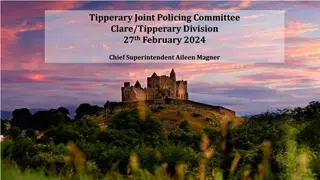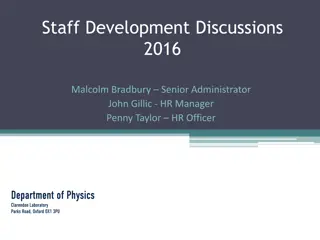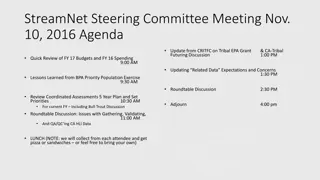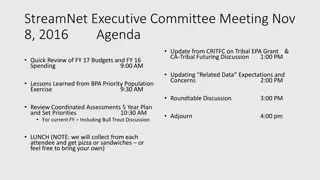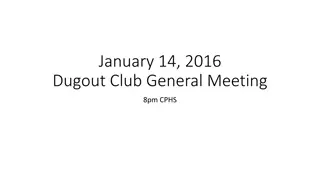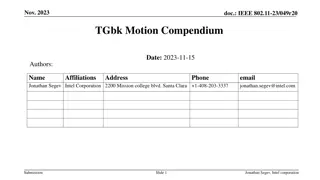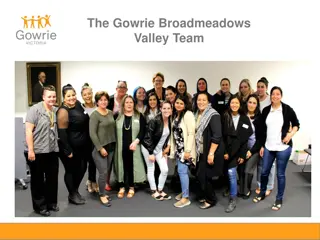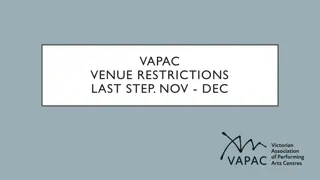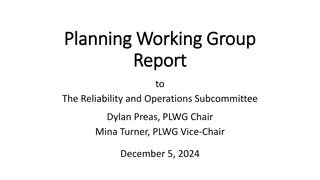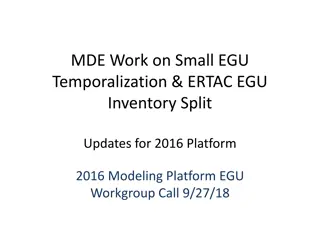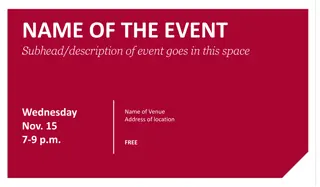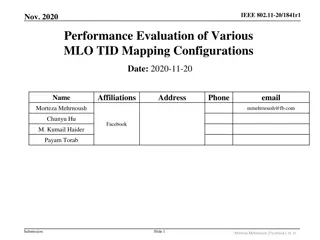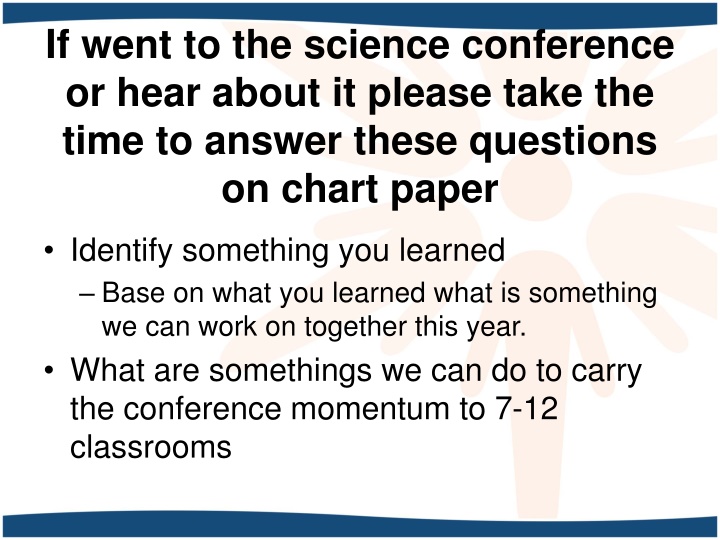
Empowering K-12 Science Education: Insights from a Science Conference
Explore key learnings and actionable insights from a science conference focused on enhancing K-12 education. Discover strategies to leverage conference momentum in classrooms and collaborate on improving science education together.
Download Presentation

Please find below an Image/Link to download the presentation.
The content on the website is provided AS IS for your information and personal use only. It may not be sold, licensed, or shared on other websites without obtaining consent from the author. If you encounter any issues during the download, it is possible that the publisher has removed the file from their server.
You are allowed to download the files provided on this website for personal or commercial use, subject to the condition that they are used lawfully. All files are the property of their respective owners.
The content on the website is provided AS IS for your information and personal use only. It may not be sold, licensed, or shared on other websites without obtaining consent from the author.
E N D
Presentation Transcript
If went to the science conference or hear about it please take the time to answer these questions on chart paper Identify something you learned Base on what you learned what is something we can work on together this year. What are somethings we can do to carry the conference momentum to 7-12 classrooms
Science Leadership Network November 15, 2016 Jessica Whisher-Hehl
Agenda NYSSLS update Curriculum materials transition plan Conference debrief Where should we go now? Beginning to develop our action plan
Introduction Please introduce yourself and share one goal you have for the year related to K-12 science.
New Science Standards Timeline School Year Implementation 2016-2017 Collaboration and NYSSLS awareness building Develop assessment framework 2017-2018 Continued collaboration and awareness building Begin local implementation Begin early assessment writing 2018-2019 Continue local implementation Assessment development with item writing and ancillary materials 2019-2020 Continue local implementation Question sampler and public information about new exams Earliest administration of new 5thand 8thgrade exams 2020-2021 2021-2022 New Regents exams
Elementary Curriculum Materials Program Recap work from last year Looked at all available options Used criteria to evaluate and systematically removed options Piloted two curricula: FOSS STC
Overall data Student Teacher Cost Alignment
Teacher Data This style of science instruction is harder than what we currently do but it is easy to see it is better for kids. I was worried about classroom management with all the materials but kids were so engaged they were focused and on task.
Teacher Data Overall both programs were well received by teachers Teachers spoke more favorably about Smithsonian materials
What Teachers Said About Smithsonian Units What I had to do was not easy but the teachers guide really helped me. I learned to rely on it and study it to prep for my lessons. The guide helped me understand what students were suppose to be doing and learning. The detail with questions to ask, background content information, learning expectations, and materials management and set up were great. The level of class discussion was wow. Probably about the best I have ever had in my classroom.
Consideration for Transition Plan Preparing students for new exam Cost Acquisition is more costly than refurbishment Flexibility comes with a cost Gradual increase to benefit from State aid Setting teachers up for success Slow transition Ability to provide high quality and specific PD
Transition Plan One new unit per year for four years As we add new offerings we retire current units we will decrease flexibility in transition Develop four schedules
Discuss Transition Plan Draft that is still being vetted SSEC allowed me to share their Framework for their new program. Please be respectful of this and don t distribute broadly.
Planning for Your Needs We are assuming two days of PD for first two new curriculum materials units. Need for some general, big picture PD for all K-12 Need for some grade band specific PD Ideas for instructional practices to support NYSSLS Claims, Evidence and Reasoning Framework Science Notebook Writing Leading Productive Classroom Science Discourse Science Argumentation
Planning for Your Needs (3-5 Minutes on your own then 10 minutes in a group) Identify strengths and concerns (include ideas for improvement) for transition plan. How can we maximize the chances of teachers receiving the two days of just in-time PD? Ideas for increasing the likelihood that the transition will lead to improving students opportunity to learn science according to the Framework.
Planning for Your Needs Please get into groups of 4-6 with people from various districts Share your individual responses Chart group responses Items of agreement Items you consider most important as a group
Debriefing the Conference and Planning for the Future Get into inter-district groups of about 4 Identify your top two big takeaways from the conference that you can turn into action items grounded in the Framework For each take away: For the how identify what OCM can do and what your district can do
District and Regional Action Plans Action Items Resources Vision Outcomes Intended Results Planned Work Adapted from W.K. Kellogg Foundation, Logic Model Development Guide
Moving your district towards the future in K-12 Science In district groups: 1. Spend 3-5 minutes writing your districts vision for K-12 science education individually 2. Share individual visions 3. Develop a draft district vision for K-12 science education Please chart
District and Regional Action Plans Action Items Resources Vision Outcomes Intended Results Planned Work Adapted from W.K. Kellogg Foundation, Logic Model Development Guide
For Next Time What to do about 6th grade? Review Model Course Maps for Middle School Review Middle School Mapping in Appendix K Review NGSS Middle School bundles Science Teacher Learning Everyone reads Chapters 2 and 5 Half read Chapter 3 and half read chapter 4 Guide to Implementing the NGSS Everyone reads Chapters 2 and 3

